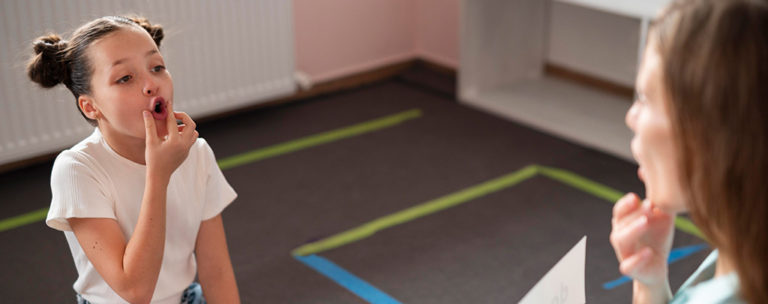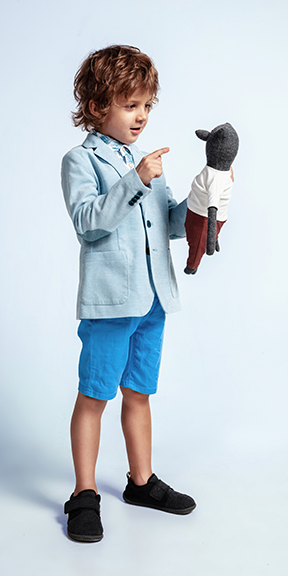Top 5 Tips to Memorise Your Lines
Kids are amazing. They’re like sponges that soak up everything you can throw at them and they can remember even the tiniest little details — especially if it was mum or dad saying yes to an ice cream two weeks ago! But when it comes to learning lines for an acting role, they often run into a little trouble. At times, it can even start to feel like homework, and that’s the last thing we want, right?
Unfortunately, if your child or teen wants to succeed as an actor, this is a skill that they simply have to master. But luckily for them, and you, it’s one that can be picked up quite easily. In fact, it can even help with your child’s school work, but don’t tell them we said that!
Over the years, we’ve hosted countless acting workshops and even launched our own online acting and modelling school, Bubblegum Academy. Throughout that time, we found that there are certain little tricks and tips for learning lines that are incredibly effective. So when parents of our newly signed kids ask us ‘how do actors memorise lines?’, we tell them all about the tips you are about to read below. Trust us when it comes to child actors, these techniques are the best way to memorise lines.
Write the lines down
Simple as it may seem, this is actually one of the most effective ways for kids to memorise lines. Of course, this particular technique will only work for kids that can write so it’s best for older kids and teens. But we don’t want you to grab that script and ask your budding little actor to copy it ten times. In fact, doing it that way could have a negative impact on your child’s view of acting. Like we said earlier, we don’t want this to feel like homework.
With this in mind, we’re going to suggest that you ask them to copy their lines once or perhaps twice only. But when they write them down, we want them to think about the words and maybe even discuss it with you. Not only will this help them memorise their lines but it will also get them thinking about their character and the storyline.
If the scene involves a conversation with other characters, you might consider writing those down too as they can provide cues to your child once they know what to expect from their co stars.
Remember though, in this instance quality is far more important that quantity. It’s all about understanding the lines as much as it is about memorising them so don’t overdo it!

Learn a section at a time
This is a great idea for longer scripts or scenes where your child may have a lot of lines to memorise. Break the scenes down into sections that you can learn off quickly. Even if it’s just one scene but your child has twenty lines, break that scene down into quarters so your child can master five lines first and then move on to the next section.
This type of memorisation technique has the added benefit of giving your child an easy win to get started. You wouldn’t believe how much of a confidence boost it can be for a child to memorise those first few lines.

Use physical cues
Physical cues can be a wonderful way to learn lines. This method gives your child actual physical actions that tie in with their lines or the scene and is used in many of the most popular acting techniques. For example, they must say a certain line after sitting down or standing up. Or perhaps they wave their hand or frown or smile before a line. These physical cues will give your child a helpful reminder of what their next line should be.
However, it’s super important that you only use physical cues that are relevant to the scene and preferably only those that are shown in the script. If your child starts using an irrelevant cue, the chances are the director will ask them to stop and this might then affect how they perform.
Practice with another person

This is one of the golden rules of acting rehearsals — always practice with another person. Okay, we’re not saying that your child or teen can’t spend some time alone memorising their lines. But what we are saying is that spending more time rehearsing with a partner can help so much you wouldn’t believe!
This is particularly true of scenes with other actors involved, which in most child actors’ cases means every scene. Mum, dad, a friend or another family member will play the other part so your child can then focus entirely on remembering their own lines and not reading out other actors’ parts. This is also a great opportunity for you to discuss your child’s performance and see if you can help them improve their actions or facial expressions.
Make a game of it
This is certainly the most fun technique so we’ve left it till last. Try to make a game of memorising your child’s lines. This can be as simple as a back and forth between your child and yourself to see who forgets a word of a line first. Or if the lines are simple, you could even try memorising a line or two backwards just for fun.
Whatever approach you take, remember that this is a great way to alleviate boredom so don’t start off with games too early. Introduce them when your child is starting to show signs of boredom or tiredness. You can even opt to have five minutes at the end of each rehearsal session dedicated to games. This will give them something to look forward to as a reward for their effort.
That’s all there is to it! At the risk of repeating ourselves we’ll just remind you that it is so very important not to push your child or teen too hard especially if this is their first role. Try to make the entire practice and rehearsal period a fun time with no major pressure or stress. As you probably already know, this type of approach often makes it easier for kids to learn as they soak up so much more knowledge when they are enjoying themselves.

By the way, if this is your first time as the parent of a child or teen actor, you might want to check out our guide on managing your child’s career. It’s got tons of useful information and tips on getting your child’s career off to the best possible start.





